Topic: Biomorphic Topologies 2.0
Date: May 25 – 26, 2024
Time: 11:00 – 15:00 GMT
Format: Online on Zoom
Duration: 2 Sessions (8 Hours)
Registration Deadline: May 24, 2024
Total Seats: 50 seats
Difficulty: Beginner – Intermediate
Language: English
Certificate: Yes
General Registration: 125 EUR
Fee For Digital Members: 106 EUR (15% discount available only for Digital Members)
Organized By: PAACADEMY
Tutor: Andreas Palfinger
Recordings: Recordings will be available for all participants afterward indefinitely.
Introduction to Biomorphic Topologies 2.0
The workshop ‘Biomorphic Topologies 2.0’ offers an in-depth introduction to organic-parametric design tools for architects and designers using Cinema 4D and Corona Renderer. Students will learn to use the advantages of CGI software in the context of various design stages – from concept models, sculpted geometries, and procedural architectural details to environments and animations. Additionally, the workshop covers the workflow of topology optimization in Fusion360 to Cinema4D, rendering and post-processing images and videos using Corona Renderer, Adobe Photoshop, and Adobe After Effects.
The Scope of the Workshop:
Starting with the basics, the workshop procedurally introduces more complex and interconnected workflows to create parametric systems and animations in Cinema 4D. Different tutorials throughout the workshop guide through the creation of architectural and biomorphic geometries, covering biomorphic pavilions and skyscrapers, facetted interiors, animated facades, organic objects, and scene environments. Every project introduces different methods and workflows, including powerful tools such as MoGraph Effectors, Volume Builder, and Cloner tool. Additionally, there will be an excursion to Fusion360 and its topology optimization toolsets, as CGI software Cinema 4D is best equipped to bring geometries to life and introduce animation to parametric geometries.
Using the Corona render engine, students will learn how to use materials, light, cameras, and environments and a post-processing workflow in Adobe Photoshop for images and Adobe After Effects for time-based animations. The introduction lecture ›Speculative futures and organic hybrids‹ gives insights into relevant projects from the worlds of design, fine art, architecture, and fashion and investigates the geometric processes and structures we can find in nature and biology.
Methodology:
The workshop covers various workflows that use Cinema 4D tools to create parametric geometry, animations, and renderings.
- Introduction to Spline, Mesh, and Subdivision Surfaces
- Interconnected parametric tools and workflows using MoGraph Effectors and Fields, Volume Builder, Cloner, Atom Array, Voronoi Fracture, Displacements, and many more.
- Combining keyframe animation with the parametric tools above
- Sculpting tools
- Combining topology optimization in Fusion360 with Cinema4D
- Introduction to Corona Render workflow (materials, lights, camera, environments, etc)
- Image Post-Production in Adobe Photoshop.
- Video Post-Production in Adobe After Effects
Assignments will be conducted individually.
Objectives of the Biomorphic Topologies 2.0:
- Use and interconnect various parametric workflows in Cinema4D
- Work with spline- and mesh-based geometry
- Utilize subdivision surfaces and sculpting tools
- Implement procedural operations like MoGraph Effectors and Fields
- Explore tools such as Volume Builder, Cloner, Atom Array, and Voronoi Fracture
- Learn techniques, including Displacements
- Introduction to keyframe animations
- Set up render workflows using materials, lights, cameras, and environments
- Create high-quality renderings with Corona Renderer
- Post-process renderings in Adobe Photoshop and After Effects
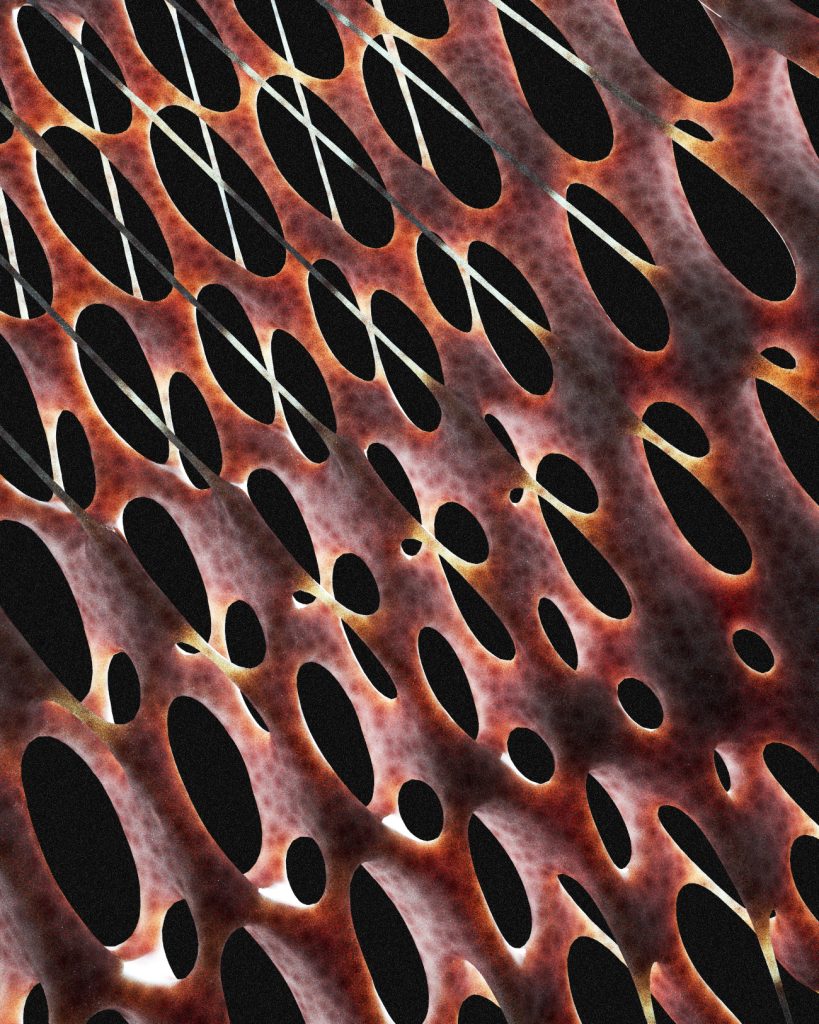
Program:
Session 1: Saturday, May 25th
- Introduction
- Lecture: Speculative futures and organic hybrids
- Introduction Session to Cinema 4D
- Tutorial 1: Hybrid Exoskeleton Tower
- Tutorial 2: Organic Assemblies
- Tutorial 3: Membranes
- Assignments
- Q&A
Session 2: Sunday, May 26th
- Lecture: Speculative futures and organic hybrids II
- Tutorial 4: Biomorphic Highrise
- Tutorial 5: Helix Stairs
- Tutorial 6: Exoskeleton
- Tutorial 7: Morphing Skin
- Assignments
- Q&A
Software:
- Cinema 4D (Required): Download
- Chaos Corona (Required): Download
- Fusion 360 (Required): Download
- Adobe Photoshop (Required): Download
- Adobe After Effects (Required): Download
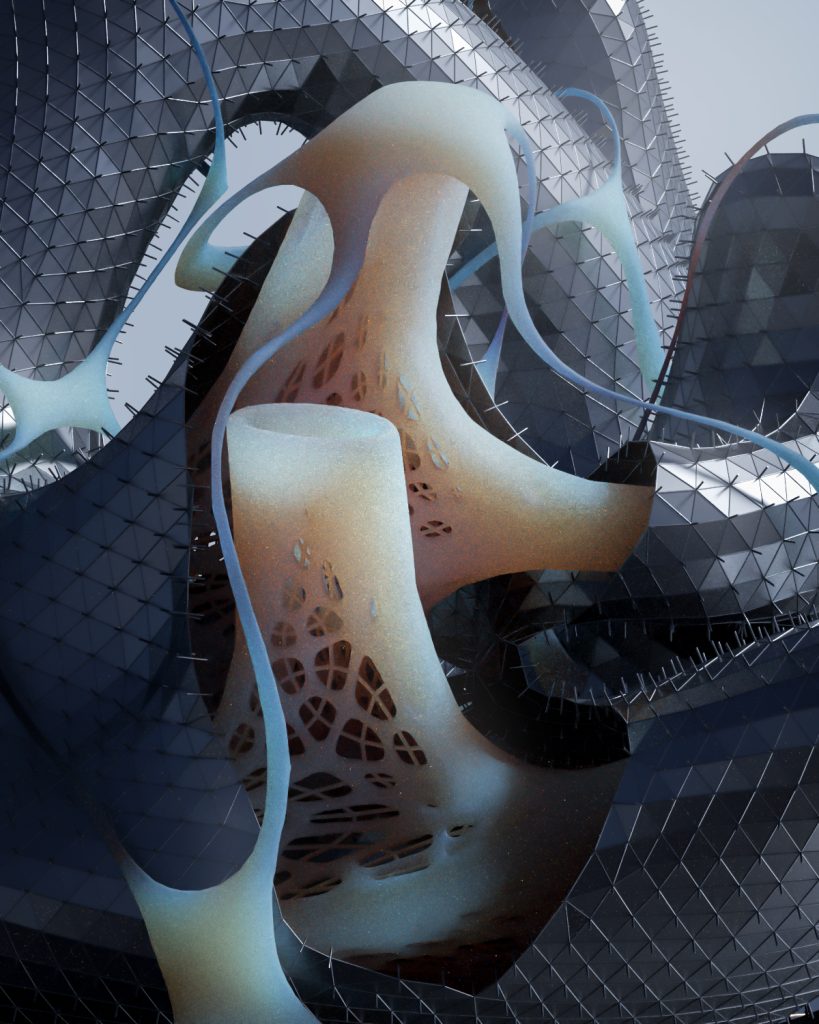
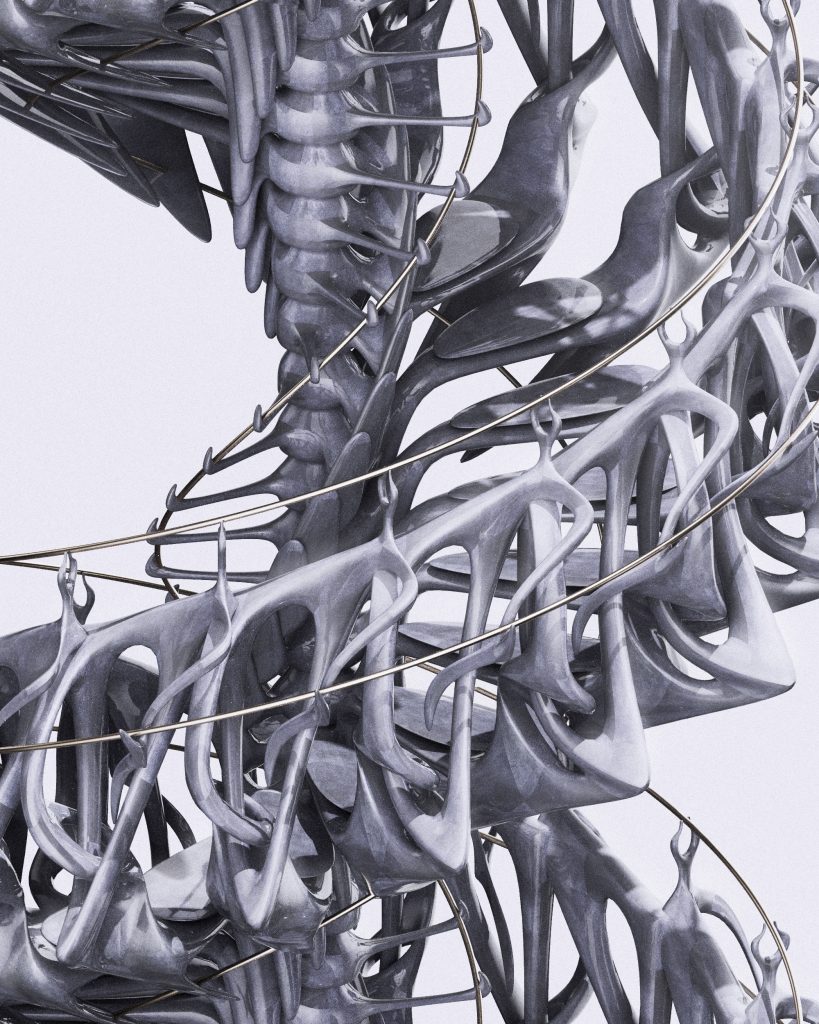
Instructor:
Andreas Palfinger
Andreas Palfinger is a New York-based interdisciplinary artist and architectural designer, practicing within the frameworks of virtual scenography, organic-parametric geometry, and functional fiction. He embraces critical and speculative approaches articulated in time-based media, CGI, writing, and sculpture. Andreas uses artistic strategies and research to reflect on topics such as post-apocalyptic societies, biased algorithms, the deconstruction of democracies, and speculative biology. Andreas worked for the future-oriented design studio Superflux in London, ODA Architecture in New York, Studio Tim Fu and for CERN (European Organization for Nuclear Research), co-created architectural sets for a VR fashion show and AR theater performances, and recently directed and produced an award-winning short film in Unreal Engine, with special focus on digital architectural worldbuilding.
He works and lives in New York City as a Fulbright scholar, studying in the Master of Architecture program at Pratt Institute, Graduate School of Architecture and Urban Design. Andreas studied architecture, graphic design, industrial design, painting, and animated film at Die Angewandte, University of Applied Arts Vienna, Bauhaus University Weimar, and Pratt Institute, New York City. Recent exhibitions included Art Basel Miami, European Forum Alpbach, Vienna Biennale, and Belvedere 21. He was honored internationally at the International Design Awards, the Art Directors Club of Europe Awards, the Red Dot Awards, the Dezeen Awards, and the New York International Film Awards.
Important Notes:
- The “Biomorphic Topologies 2.0” Studio workshop by PAACADEMY will start at 11:00 (GMT) on Saturday, May 25th, 2024.
- Total sessions: 2 Sessions
- The teaching duration per session will be 4 hours.
- Students will have time for a break between teaching hours.
- Each session and the entire studio will be recorded, and videos will be available for participants just a day after the class for unlimited time.
- PAACADEMY will provide a certificate of attendance.
- The studio has limited seats. Tickets are non-transferable & non-refundable. Please read carefully before you register.
Topic: Biomorphic Topologies 2.0
Date: May 25 – 26, 2024
Time: 11:00 – 15:00 GMT
Format: Online on Zoom
Duration: 2 Sessions (8 Hours)
Registration Deadline: May 24, 2024
Total Seats: 50 seats
Difficulty: Beginner – Intermediate
Language: English
Certificate: Yes
General Registration: 125 EUR
Fee For Digital Members: 106 EUR (15% discount available only for Digital Members)
Organized By: PAACADEMY
Tutor: Andreas Palfinger
Recordings: Recordings will be available for all participants afterward indefinitely.
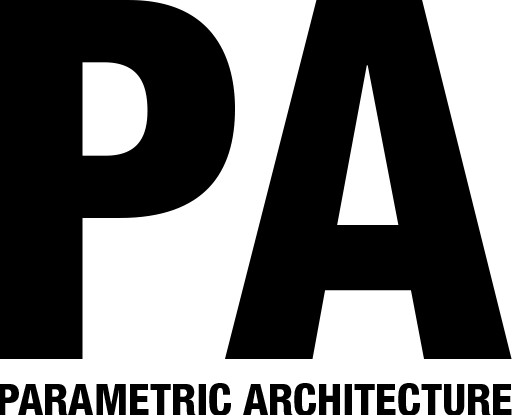


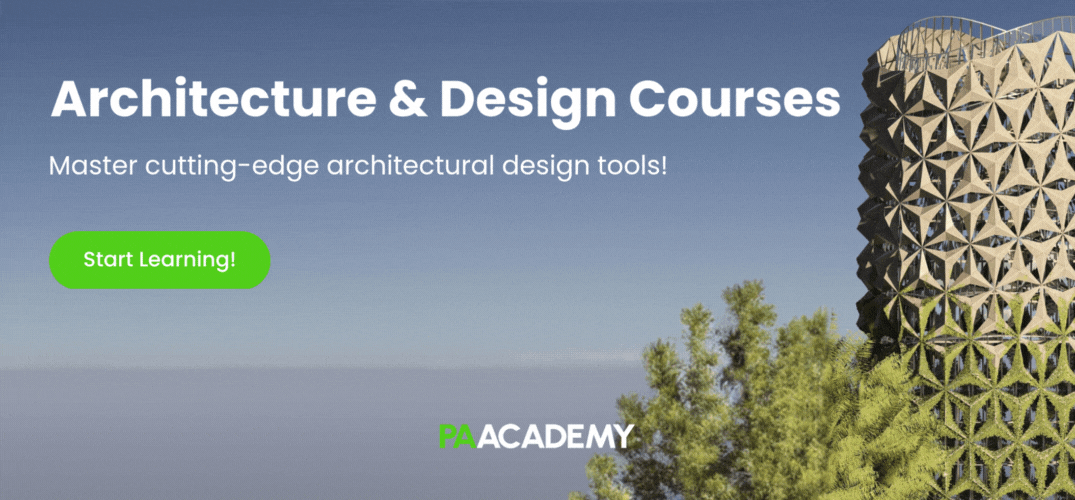
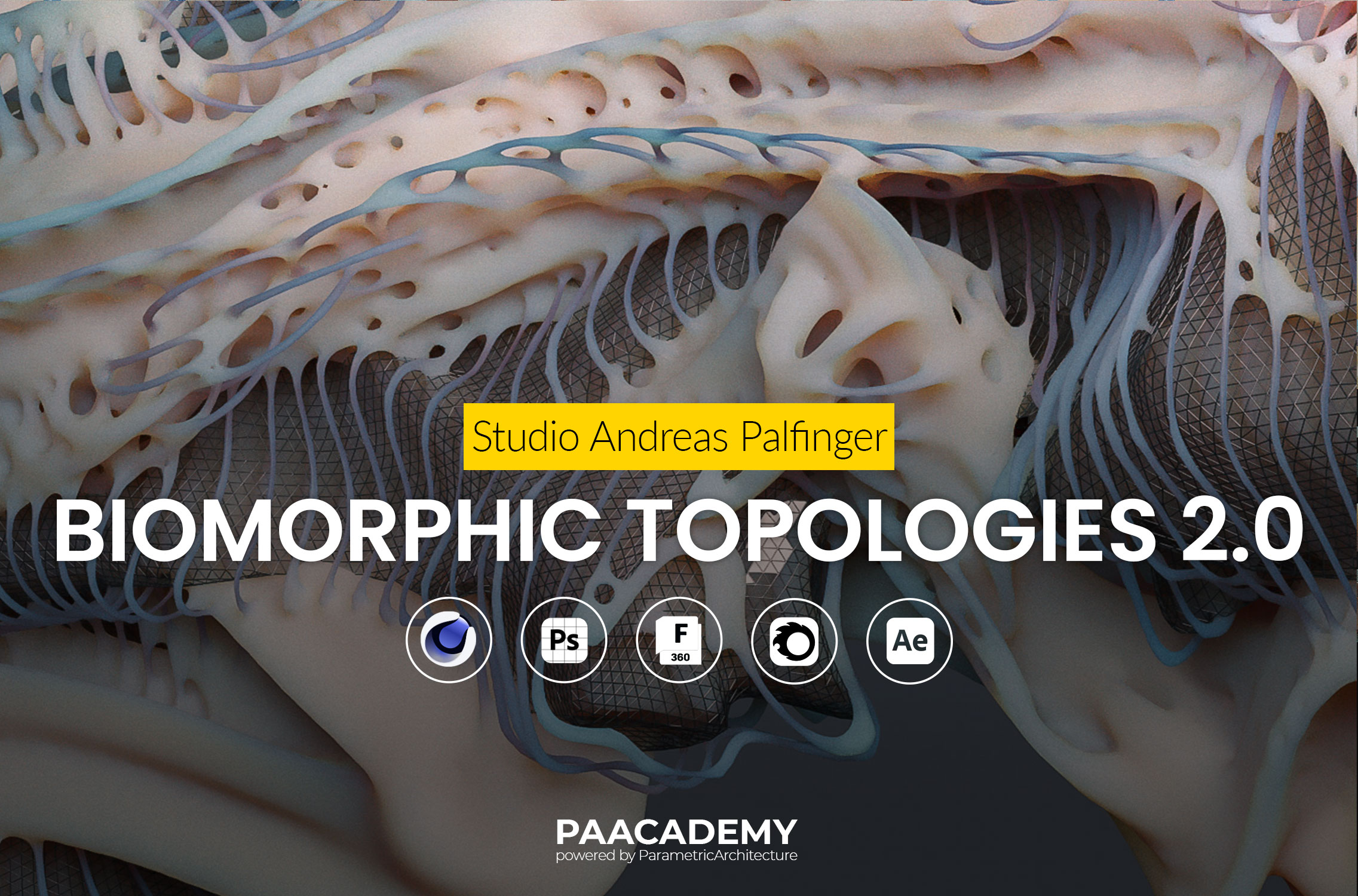
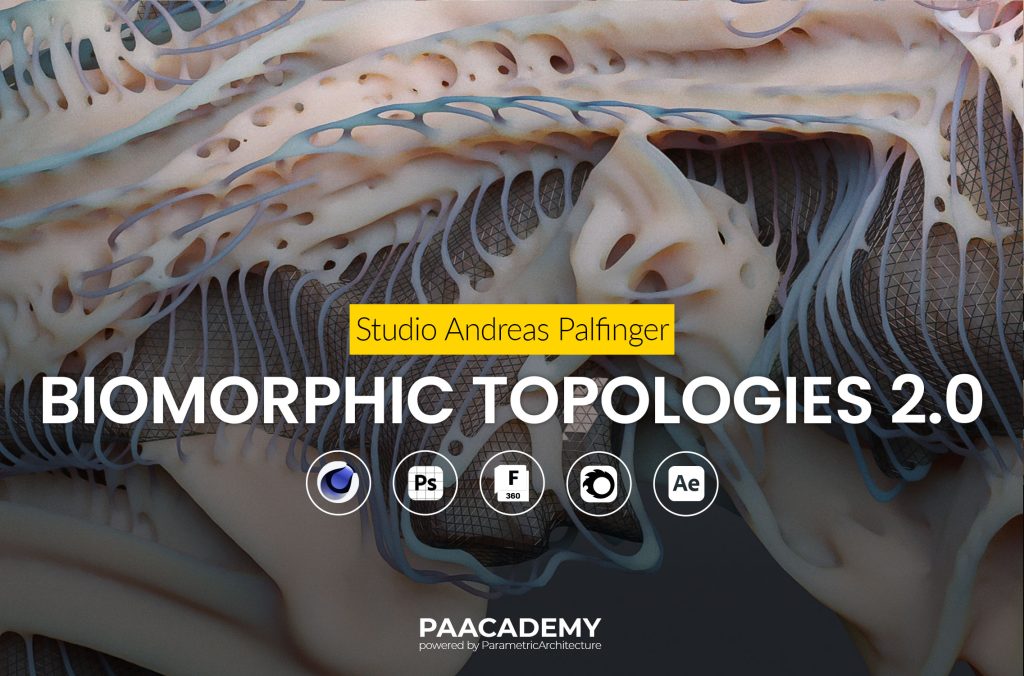
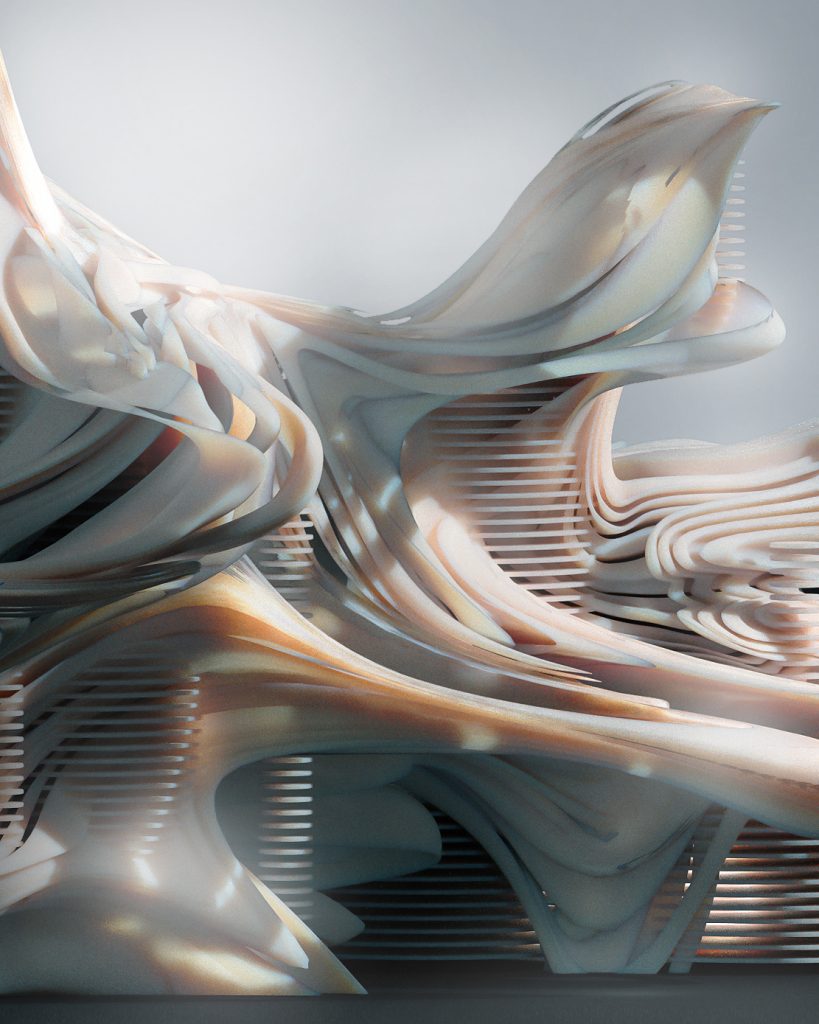
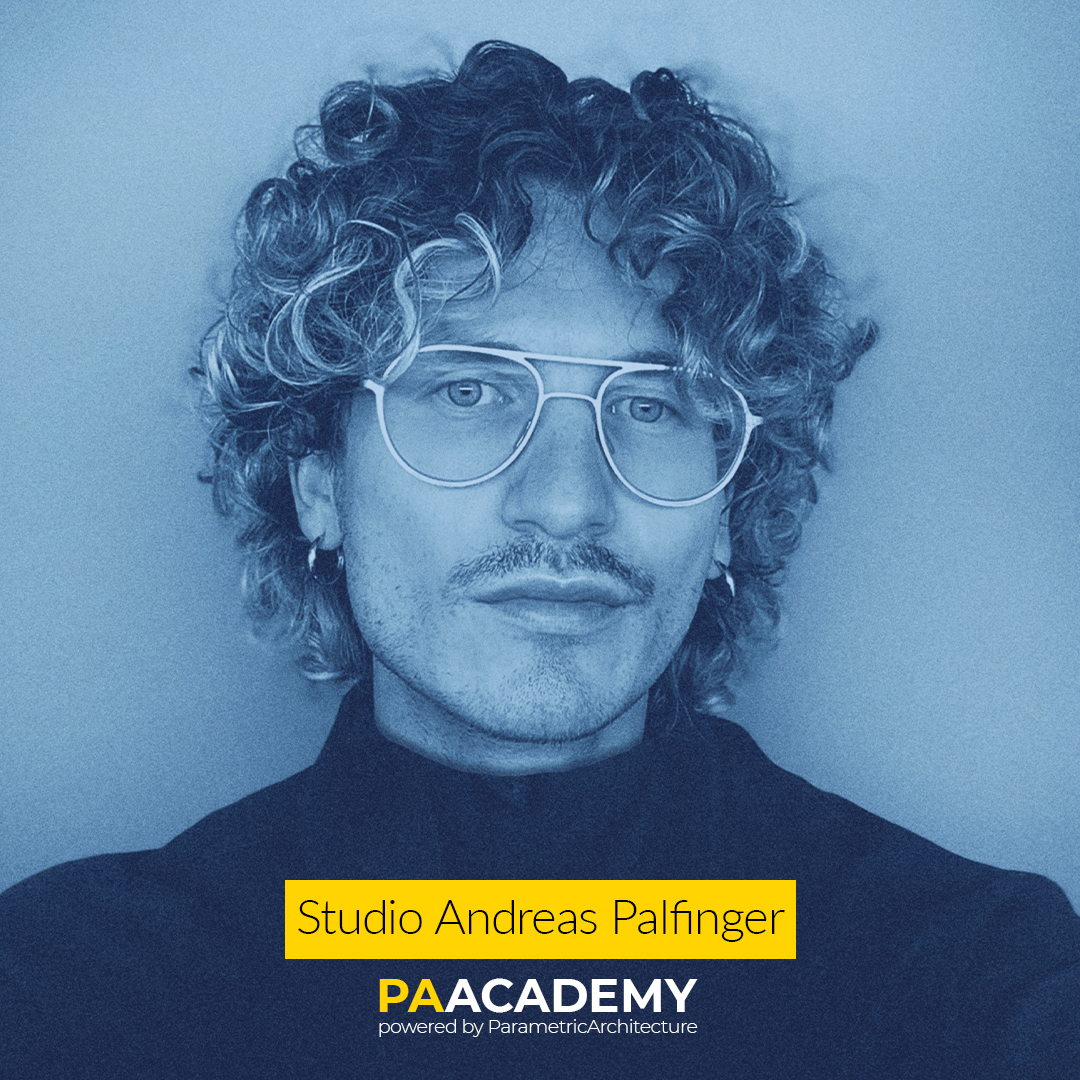
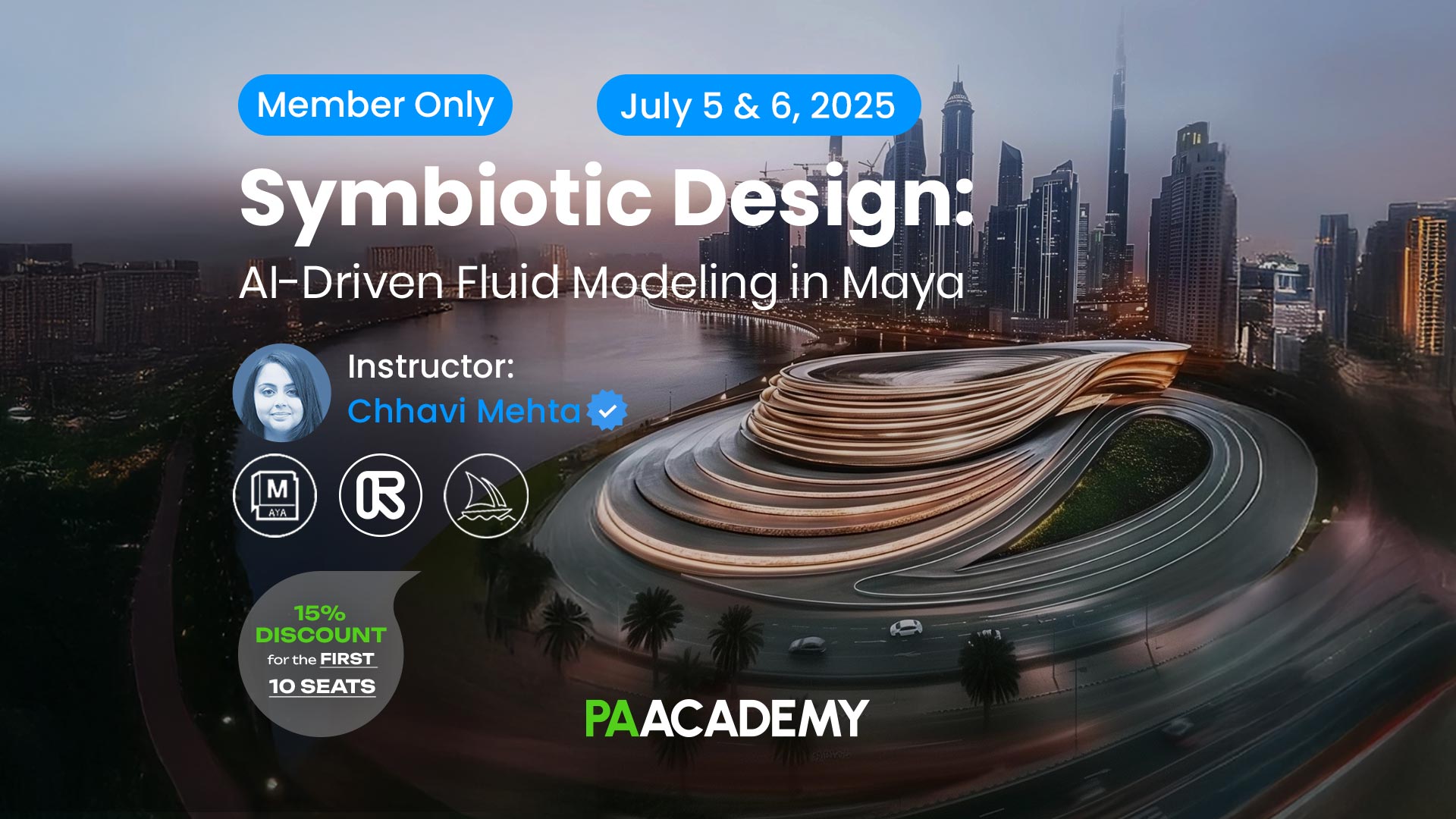
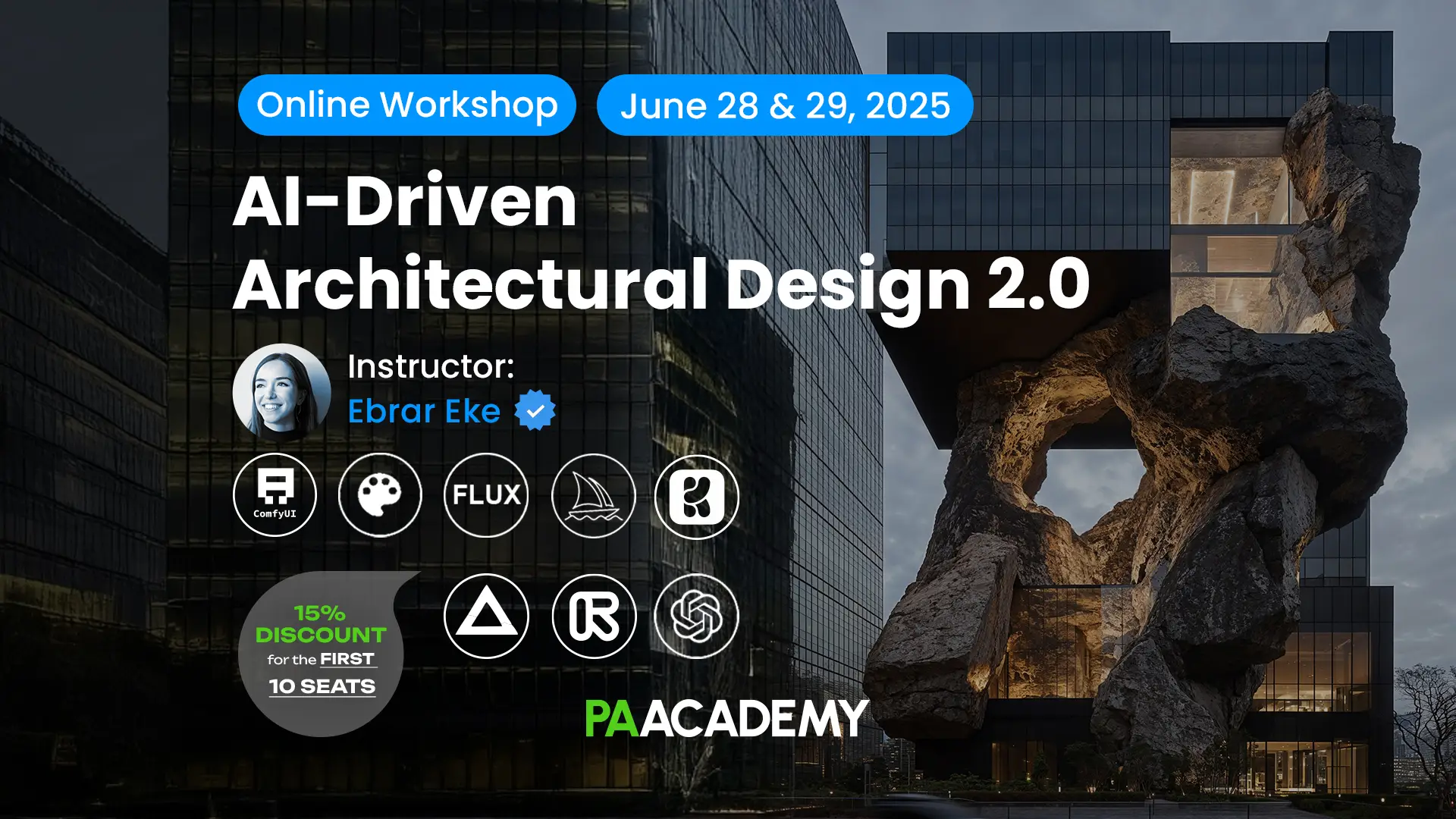
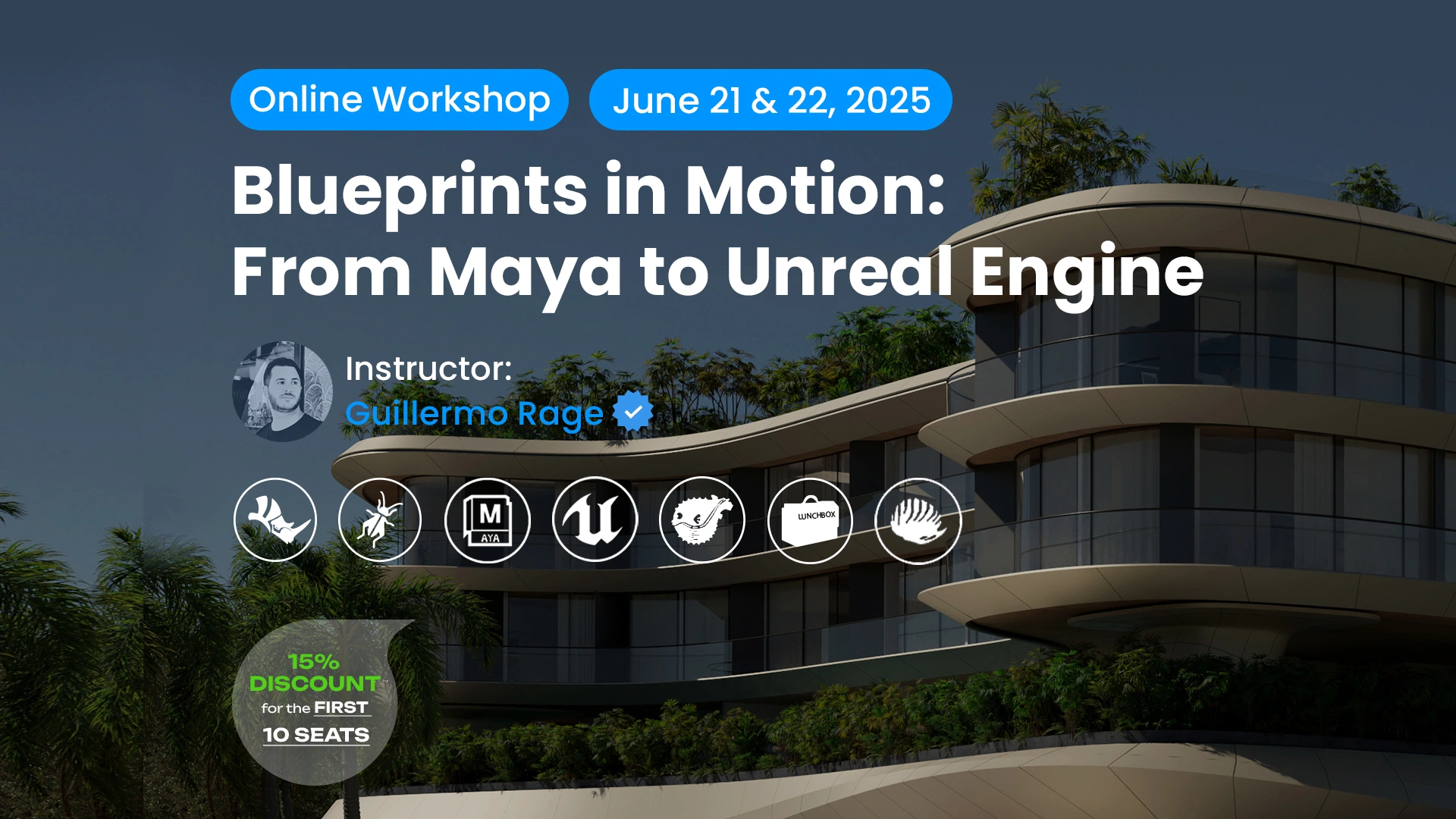
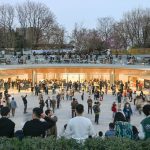
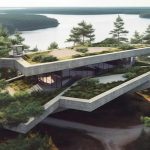
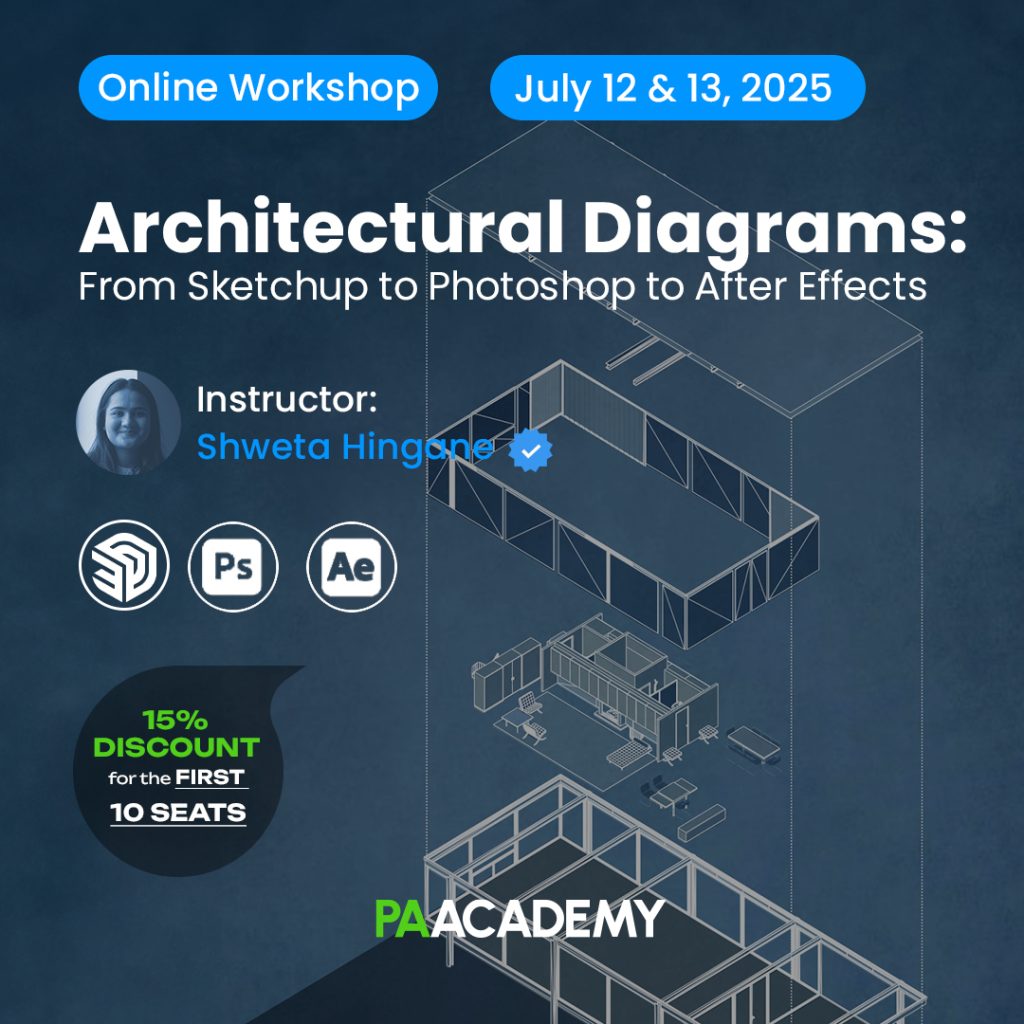
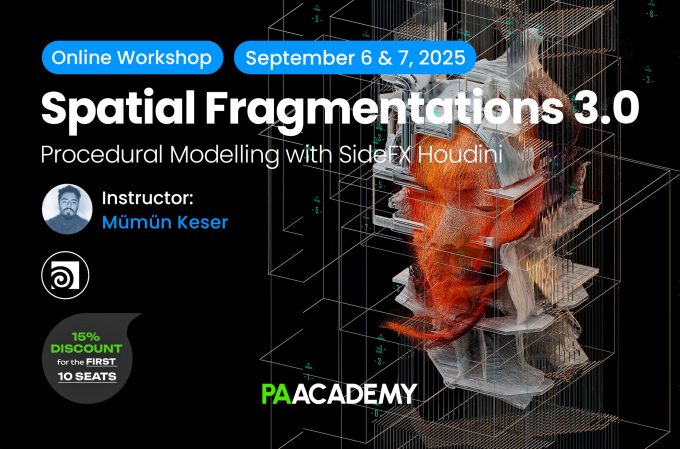
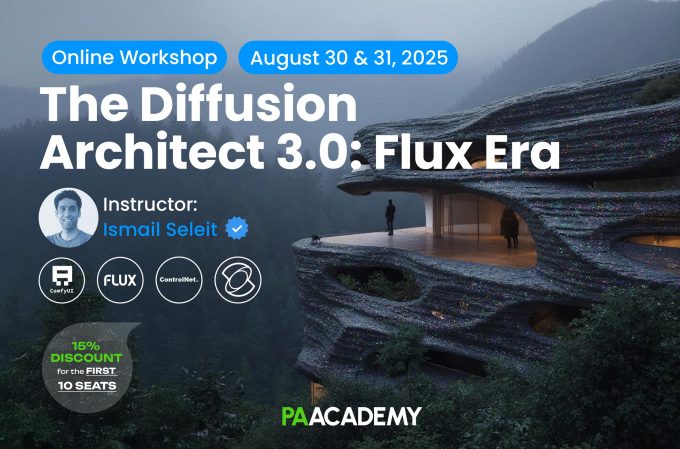
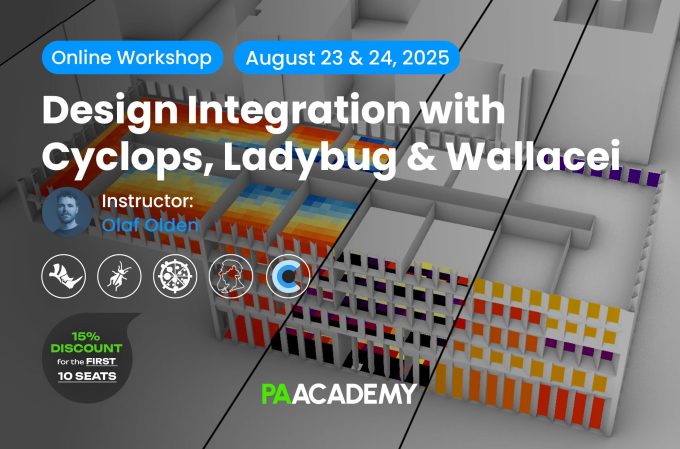





Leave a comment